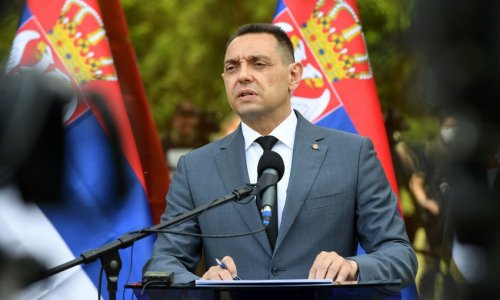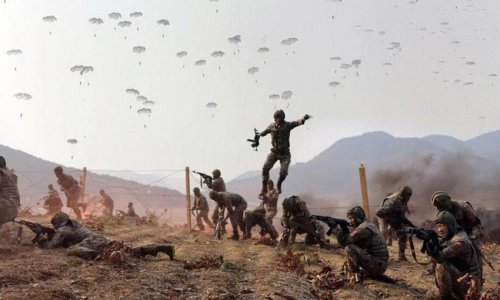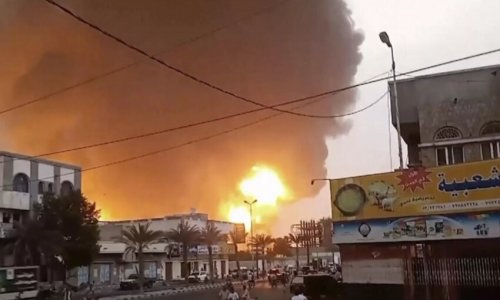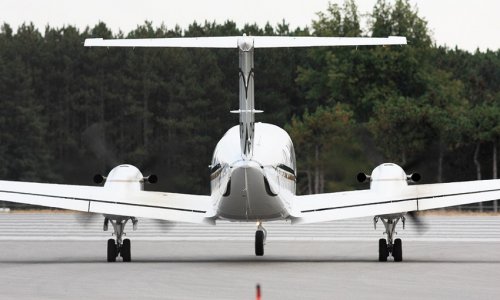Why were the girls captured?In the local Hausa language, Boko Haram means "Western education is forbidden". So the abductions show the group's visceral hatred for Western education. Moreover, the group promotes the puritanical Islamic view that a woman's place is in the home.The militants have attacked schools before. The school in Chibok, which was hosting final year exams for Christian and Muslim schoolgirls, was one of the only ones still open in this remote area of Borno state and had no security protection that night.Has Boko Haram abducted girls before?When it attacked a rural boarding school in Yobe in March, Boko Haram killed at least 29 males - but spared the lives of girls, ordering them to go home and get married. Some analysts believe that Boko Haram felt its order had been defied, and it has retaliated with the Chibok abductions in order to impose its will.However, there is a precedent for abductions - in May 2013, Boko Haram released a video, saying it had taken women and children - including teenage girls - hostage in response to the arrest of its members' wives and children. At the time, the group said it would treat the women as slaves - something it has also said about the Chibok girls. This has fuelled speculation that it is adhering to the ancient Islamic belief that women captured in conflict are part of the "war booty".Have any of Boko Haram's hostages ever been freed?US-based Boko Haram analyst Jacob Zenn says in some cases there have been "tit-for-tat trade offs", with both the militants and security forces releasing those in their custody.In February 2013, Boko Haram also abducted a French family of seven, including four children aged between five and 12, who were visiting a nature park in neighbouring Cameroon. They were later released.Reuters news agency reported at the time that it had seen a Nigerian government document which indicated that a ransom of more than $3m (£2m) had been paid for their freedom. The French and Cameroonian governments denied this. In January this year, French priest Fr Georges Vandenbeusch was freed by Boko Haram after nearly seven weeks in captivity. Again, France denied a ransom was paid.What is being done to free the schoolgirls?The government says it is taking "discreet" action, and it does not want to do anything that could lead to the abductors killing the girls. In March 2013, another Nigerian militant group, Ansaru, killed seven foreign hostages, including a UK national, after accusing British and Nigerian forces of launching an operation to free them. The government's main problem is that its intelligence agencies have largely failed to infiltrate Boko Haram - if anything, the group has been more successful in infiltrating official agencies. So the chances of the government having much inside information on the group's activities are slim.The US has offered to send a team of experts, including soldiers and hostage negotiators. The UK says it is also providing "planning support". Aerial reconnaissance and satellites are not as helpful as they could be because of the region's rugged and dense terrain.Where could the girls be?The kidnappers have probably broken up into dozens of groups, each one taking with them one or two girls. It is thought they are now scattered across the 60,000 sq km (23,166 sq miles) Sambisa Forest, their main hide-out near the Cameroonian border.Mr Zenn says it could take more than a decade to free them. He draws parallels with Uganda, where the Lord's Resistance Army (LRA) rebel group, which is fighting for a biblical state, specialises in kidnapping children, using them as soldiers, sex-slaves and servants. LRA abductors roam with the children through dense bush and across porous borders. Some manage to escape; others are released as part of peace initiatives, while many others remain in captivity all their lives.Why is it so difficult to establish how many girls are missing?Fifty-eight children have escaped, some of them by jumping off trucks in which they were being transported after some 200 gunmen captured them at the school. "We ran into the bush and waited until daybreak before we went back home," one girl told the BBC.Associated Press news agency reported that an intermediary is in contact with the abductors. It reported that two children had died of snakebites and 11 were ill. But just how many are still in captivity is unclear. Children from neighbouring areas had been at the school to write their exams when Boko Haram carried out its offensive. School records were burnt during the attack, making it difficult to establish, officials say, how many were taken away. Officials also say more children may have escaped, with their families failing to report their return to the authorities.How have Nigerians reacted?With outrage. Nigeria is heavily split along religious and ethnic lines, but all the main groups have united to put pressure on the government to secure their release. Protests have been organised over social media using the hashtag #BringBackOurGirls. President Goodluck Jonathan's critics says the government has handled the crisis badly, and he should step down rather than run for another term in elections next year. His allies respond that the abductions took place in an opposition-controlled state, and the abductions reflect more badly on the opposition than the federal government.Can't the government do more?President Jonathan imposed a state of emergency in the three insurgency-hit states, Borno, Yobe and Adamawa, in May 2013, but Boko Haram has retaliated by stepping up attacks and the insurgency has entered its bloodiest phase. More than 1,500 have died this year alone in the violence. Government troops say they are poorly resourced and do not have the firepower to rival Boko Haram.Not only does the group operate like a guerrilla movement, but it also resembles an army with ground forces. Hundreds of its fighters have marched into villages, backed by pick-up trucks and armoured vehicles mounted with machine guns. So it has a military arsenal usually found in a national army.How did it become so powerful?It is not clear where Boko Haram gets its weapons or financing - it may have made money from its recent kidnapping of foreigners. The government suspects it is backed by certain politicians and disloyal security officers - and it has forged ties with jihadi groups such as al-Shabab in Somalia and al-Qaeda in the Islamic Maghreb.Although some dispute this, the increasingly sophisticated nature of its attacks - including bombings and assassinations - suggest that it has received foreign training. There are also unconfirmed reports that it recruits poor people from neighbouring states, including Chad and Niger, and pays them to fight.What is every day life like in the north-east?Nigeria is Africa's largest economy and one of the world's biggest oil producers, but the mainly Muslim north-east of the country is relatively undeveloped compared to other areas. Now money that should be spent on infrastructure is being spent on a burgeoning security budget and on rebuilding homes destroyed in militant attacks.The government says the insurgency has displaced about 250,000 people since the beginning of the year and more than three million people are facing a humanitarian crisis.Boko Haram has carried out mass attacks on villages, killing, looting and torching buildings in both Muslim and Christian communities. It has also raided markets in small towns for food, banks for money and police stations for guns.Does Boko Haram have support in Nigeria?It was popular in the northern city of Maiduguri, its birthplace, when it emerged in 2002 as a religious sect, capitalising on public anger over corruption, poverty and perceptions that the north is marginalised by the federal government. However, it lost support after it took a more militant path by assassinating moderate Muslim leaders, and bombing churches and other public places.Now, it is said to draw its fighters mainly from the Kanuri ethnic group to which its leader Abubakar Shekau belongs. He is far more militant then his predecessor, Muhammad Yusuf, who was killed by the security forces in 2009. The US has offered a reward of up to $7m for information about Mr Shekau's location. He is presently the most wanted man in Africa.(BBC)Bakudaily.az
Will Nigeria's abducted schoolgirls ever be found? - PHOTO
World
19:31 | 07.05.2014
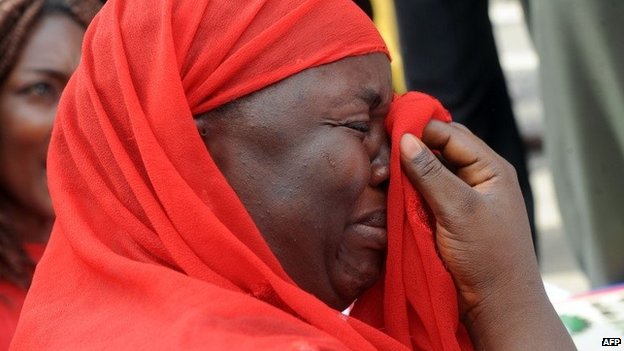
Will Nigeria's abducted schoolgirls ever be found? - PHOTO
Nigeria's militant Islamist group Boko Haram abducted more than 200 girls from a boarding school in the northern town of Chibok on 14 April. An estimated 200 heavily armed militants arrived at night in 20 vehicles to steal supplies and kidnap the students.
Follow us !



